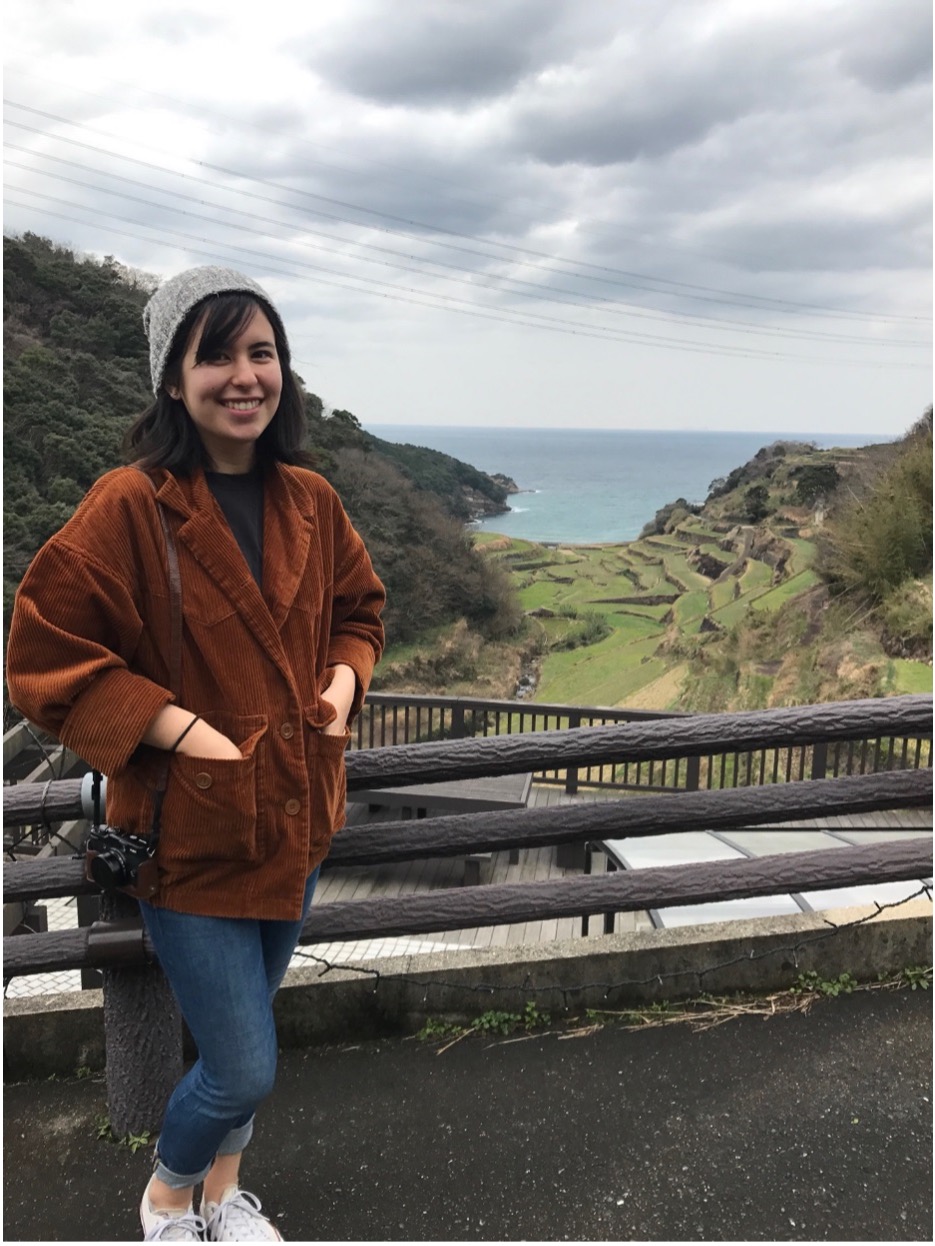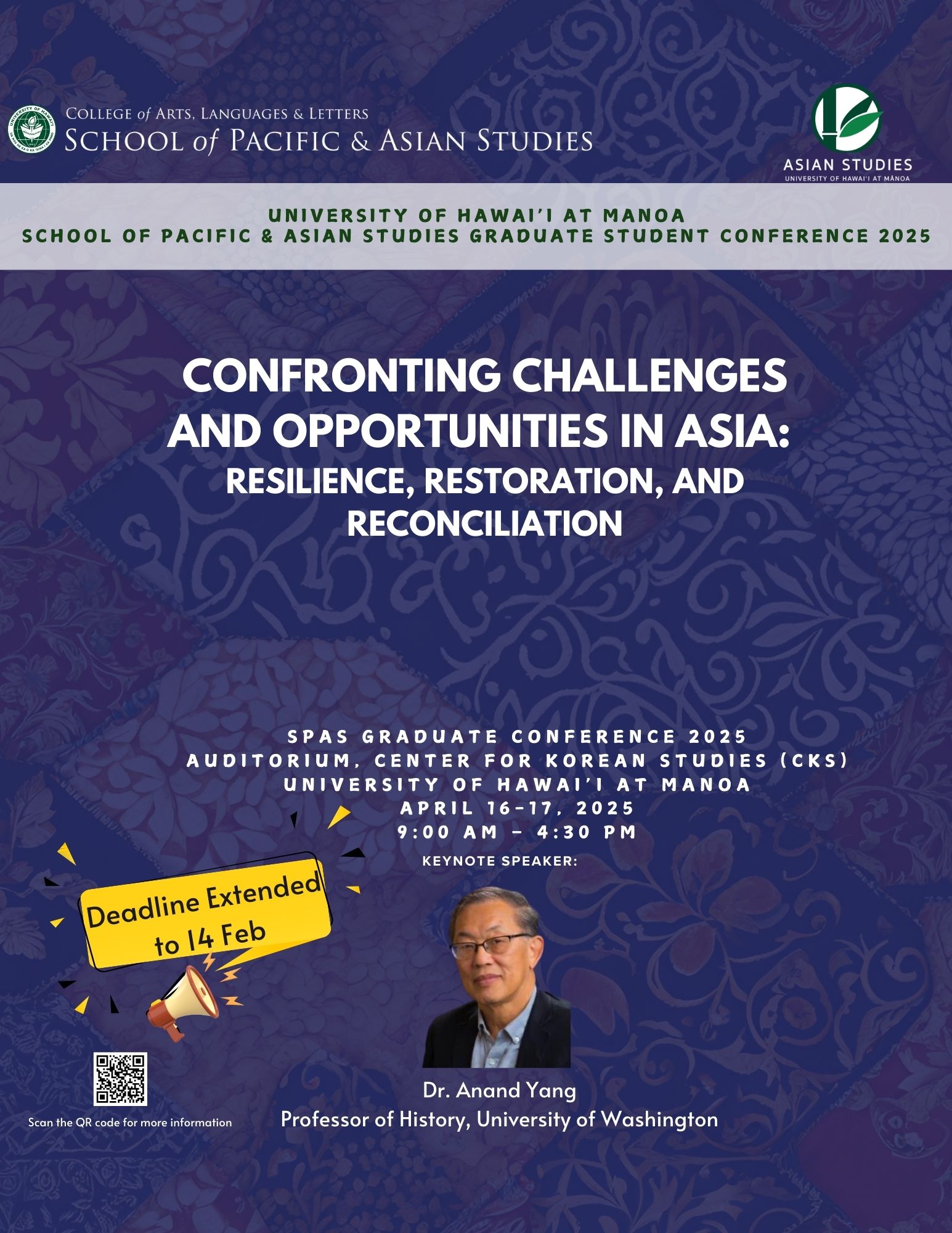We are excited to announce that Dr. Benjamin Bartlett, Assistant Professor of Political Science at…
CFP: Graduate Student Conference April 7-9, 2020
The School of Pacific and Asian Studies (SPAS) at the University of Hawai‘i at Mānoa (UHM) welcomes proposals for papers, performances, and panels for its 31st annual Graduate Student Conference. The conference will be held at the Center for Korean Studies on the UH Mānoa campus in Honolulu, Hawaii, on April 7-9, 2020.
The theme this year is “Stories of Movement in Asia: Boundaries and Exile.”
Throughout history, Asia has been characterized by movement and mobility – of people, ideas, cultures, arts, education, bodies and goods. In today’s world, this movement has been intensified by economic and technological integration, as well as by political crises and economic uncertainty as individuals and whole communities seek better lives both within and beyond the Asian region. The human beings involved in these movements bring with them their own ambitions and their own histories, but they are also the vehicles for the transmission of cultural forms and attitudes. On one hand, such movement can be seen as a positive element. New technologies of communication are enlarging the boundaries of “Asia” and changing the demography of the region itself. They enable the creation of transnational communities centered not just on ties of kinship and language, but also on shared ideas, experiences, or desires, which can reduce the apprehension that exiled peoples may experience when relocating to a different environment—or, in some cases, obviate the need for physical relocation entirely. On the other hand, movements across national and cultural boundaries create their own challenges, prompting powerful institutions to exert new kinds of control and new forms of exile aimed at stopping or shaping these flows in particular ways. Yet even in adverse conditions, the people who move across the diverse landscapes of Asia and beyond connect with one another in ways that sometimes go unnoticed. The goal of this conference is to bring to light these connections and the influence that they have had on shaping Asia—past and present—and through it, the world. We especially encourage proposals from graduate students who are engaged in original research related to Asia and movement, broadly defined.
Why Apply?
The SPAS Graduate Student Conference gives students an opportunity to present their research to a friendly group of peers and professors. As many students from across the U.S. Europe, and Asia attend the conference, there are ample opportunities to network with fellow academics with a passion for the study of Asia.
Who Can Apply?
Graduate students in any academic discipline with a focus on Asia.
Graduate students in any academic discipline with a focus on Asia.
How to Apply
Applicants should submit a 250-300 word abstract to gradconf@hawaii.edu with “SPAS 2020 Grad Conf Abstract” as the subject by January 31, 2020.
Please direct any questions to the conference organizers: Jordan Antonio (jordan45@hawaii.edu) and Cheyne Tribbey (cheynetr@hawaii.edu)





